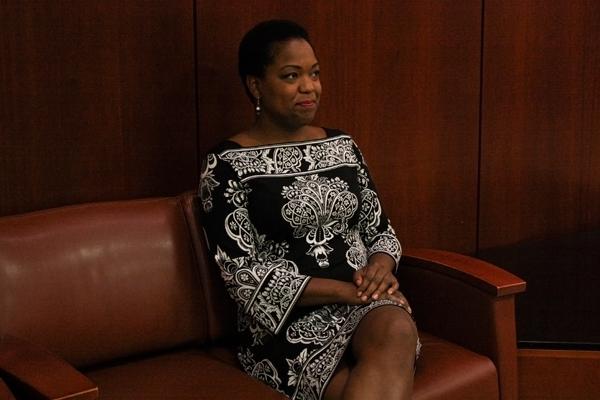Hurricane Matthew hit Haiti two weeks ago, killing more than 500 people and leaving another 175,000 people displaced, according to United Nations data.
Haitian students and members of GWU Haiti said after the tragedy, they knew they had to find ways to help the country and support one another.
Rachel Décoste, a second-year master’s student of public administration at the Trachtenberg School of Public Policy and Public Administration, said the small community of students with Haitian heritages and ties to the country have given each other tremendous amounts of support since the hurricane hit.
“We’ve crossed each other on campus and said, ‘How is your family doing?’ or ‘How is your grandmother’s house doing? Let’s keep in touch as we learn more because we’re all still figuring out what’s going on,’” she said about the members of GWU Haiti.
Décoste created GWU Haiti last year for students with Haitian roots to connect and bond over their heritage. Haitian students have needed the support over the past few years between a devastating earthquake in 2010 and the recent hurricane.
Since Hurricane Matthew hit, Décoste has connected with the School of Nursing, which sends a cohort to Haiti twice a year, with plans to hold one or two workshops for the nurses to educate them about Haiti’s culture before they leave for the trip, she said. She and other members of GWU Haiti said that knowing the social context of the country will help the nurses in aiding Haitians – something reports in the U.S. often leave out, they said.
Reporting on the crisis in Haiti would benefit from including historical context, so volunteers or people watching from afar could know more about the country’s social and political situation, Décoste said.
“I long for our story to be told – the real story – not the one corrupted by colonialism, distorted through prejudice or just plain ignorance,” Décoste said.
Décoste said she has been a community activist, working with the Children’s Aid Society as a mentor and the Black Canadian Scholarship Fund as a volunteer. She has used these experiences to connect GWU Haiti with other organizations in D.C., like the Haitian-American Professional Organization of D.C. and the Haitian embassy, to find ways to provide services to the country.
GWU Haiti members have encouraged people outside the group who want to help to donate to local organizations, like the Association Québécoise por l’avancement des Nations Unies, or AQANU, instead of larger agencies like the Red Cross, Décoste said.
Jasmine Noel, a second-year graduate student in the Elliott School of International Affairs whose family lives in Haiti, said smaller organizations are more successful in empowering Haitian citizens.
“[Larger operations] flood the country and engage in humanitarian efforts without consulting with local governments or NGOs in the area,” said Noel referring to non-governmental organizations. “Those types of actions undermine the local people and take away the power and responsibility of local authorities.”
Jason Marshall, another member of GWU Haiti and a first-year master’s student in public policy, said the media has oversimplified and neglected the background of Haiti’s current condition, which he hopes the group can remedy.
Marshall has ground experience in Haiti working with Clemson Engineers for Developing Countries, an organization that provides Haitians with clean water systems.
Marshall cited an example of a Weather Channel news report that said deforestation in Haiti is due to the children eating the trees.
“Providing this one-sided narrative is really insulting and often untrue,” Marshall said.







